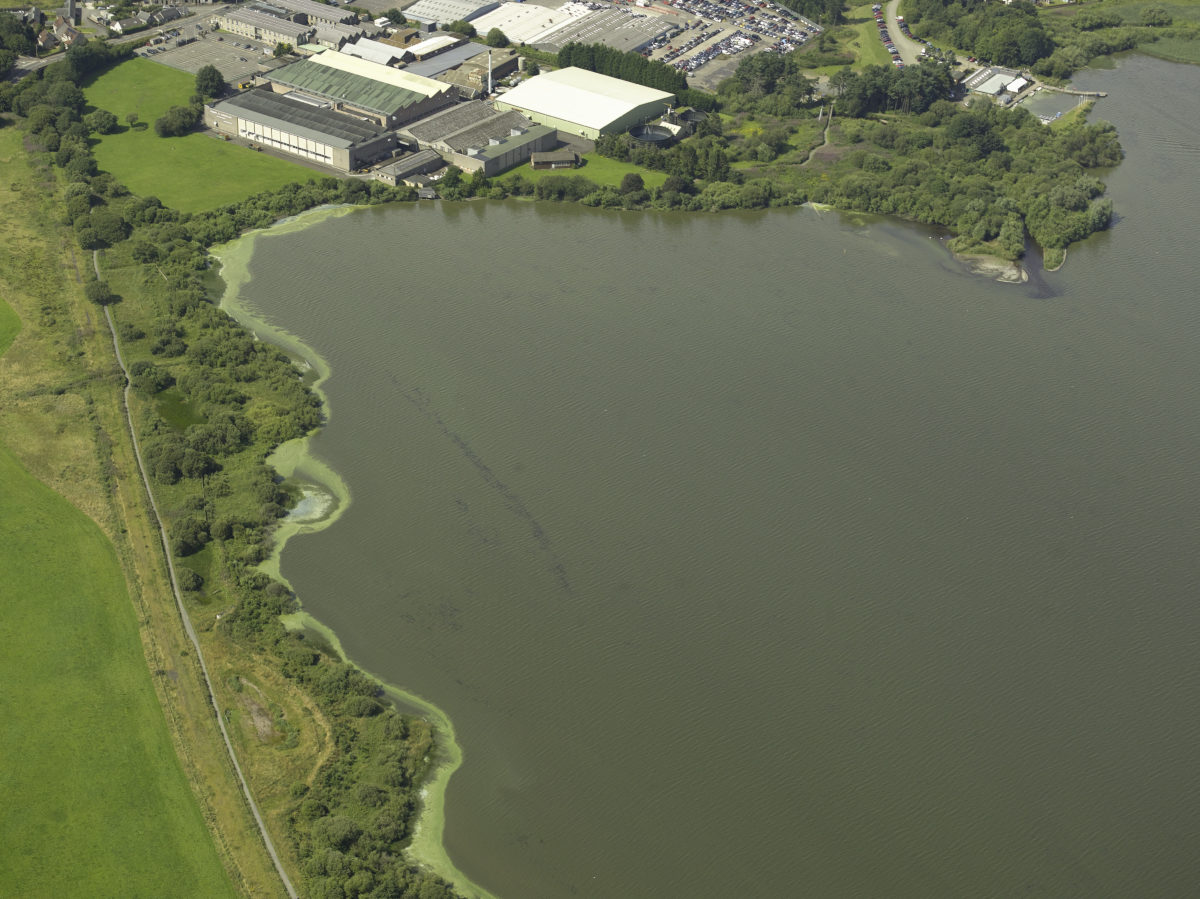Editor’s Note: CELDF is pleased to present a guest blog from our partner Susan Shaw, a solicitor and founder of Living Law, in Scotland. We have been engaging with groups in the U.K. for a number of years on advancing Rights of Nature frameworks, including holding a series of workshops, meetings, and public events in January 2019 in Northern Ireland with partner Friends of the Earth U.K.
The time has come for the U.K. to join with others and recognize the strategic potential of a Rights of Nature approach in our national laws.
The tragic events we have witnessed from the Amazon must act as an epiphany for the entire international community: restoring harmony and balance between people and Nature is not an ‘optional nice to do.’ It’s a matter of international peace and security, and humanity’s own survival. The science tells us that time is not on our side. We risk crossing further tipping points in the Earth-system. Every member of the international community must step up, show leadership, and finish the job it started with the Stockholm Declaration on the Human Environment in 1972, almost 50 years ago.
The Rights of Nature movement, which is rapidly gaining traction across the world, offers an important pathway forward in law to help guide the required paradigm shift, in a managed way. This premise may seem radical but is a natural (and necessary) departure from approaches that still view Nature as property to be exploited endlessly. Far from being a new concept, Rights of Nature are embedded in indigenous cultures and practices across the world, recognizing the reality that all life is deeply connected and interdependent.
A Sixth Mass Extinction
For the first time ever, we recently saw the rapid decline in biodiversity placed front-and-centre on the G7 Agenda in Biarritz and our leaders commit to a new ‘Biodiversity Charter.’ This follows the release of the IPBES Report earlier this year that confirmed from the world’s top scientists that we have entered a sixth mass extinction and that 1,000,000 species will likely disappear unless we fundamentally change our course. We are in the midst of an ecological crisis – biodiversity loss is recognized as being an equivalent threat to that of climate change. Chemical pollution, ocean acidification, the nitrogen cycle, and other phenomena present additional challenges, as we come face-to-face with the inescapable reality of how far outside of equilibrium we are living with the natural world.

Planetary Boundaries are said to be linked such that crossing one threshold in the Earth-system may increase the risks of crossing other thresholds, and undermining the overall resilience of Nature to absorb our unsustainable actions. We have known for many years that we face “inter-locking” (not separate) crises. And therefore, so too must our responses be guided urgently by this realization. There is a pressing need for holistic legal and governance solutions; not approaches which simply drive further environmental ‘problem-shifting’ (addressing one environmental problem, only to replace it with another equally problematic or unsustainable practice).
No Harm Obligation
We are simultaneously facing a renewed wave of misrepresentations, and outdated notions, of national sovereignty. These are equally present in the U.K.’s approaches to post-Brexit trade negotiations. We must be clear at this time that as a basic principle of international law, states have an obligation of “no-harm” in relation to activities that have transboundary dimensions. They also have obligations, deriving from human rights law, to protect us, their citizens. These facts must remain at the forefront of our thinking as we move forward. It is, simply put, not a sovereign right to do harm to others.
“We must be clear at this time that as a basic principle of international law, states have an obligation of “no-harm” in relation to activities that have transboundary dimensions.”
While acknowledging that law alone cannot realize the required changes in humanity’s behavior, history shows us the pivotal and catalyst role it offers, when used thoughtfully and diligently, to guide realignment. Just as we ended slavery, it’s now time to end the enslavement of Nature (and thereby, also people) that our existing environmental laws promote. Several countries have begun to embrace the Rights of Nature revolution – by recognizing that Nature, including ecosystems, populations, and species are guaranteed “the rights to exist, flourish, regenerate, evolve and restore.”
Embracing Legal Rights of Nature
From Bolivia to Bangladesh, Colombia, Ecuador, India, and New Zealand, all these countries have now already embraced forms of recognitions of legal rights for Nature in their national laws (as analyzed, amongst others, in a detailed report published by my firm last year). Opportunity exists for states to create legal recognitions of Nature while taking into account their own specific national circumstances. Through collaboration and shared learning with international experts and indigenous leaders, those at the forefront of the Nature Rights movement identified and proposed key guidelines for the recognition and enforcement of legal rights of the natural world (the “Rights of Nature Principles”) which can help guide the development of robust Nature Rights laws.

Using Critique to Advance a Paradigm Shift
For sure, this legal movement is not without any criticism. Yet, while some of these criticisms may, at first blush, seem merited – such as the difficulty to enforce Nature’s rights in the context of rivers which traverse more than one legal jurisdiction – they are not insurmountable with a little thought and collaboration in the development process. If anything, when many such criticisms undergo hard analysis they often underscore and add weight to why the optic shift is needed. What is important is that these issues are duly debated, and context-specific solutions identified. Equally, we must work to dispel common myths and fears.
Foremost amongst these, “Legal personhood” – that is, the ability to bear rights and duties before the law – is often erroneously being conflated as “giving nature the same rights as humans.” This is patently not the case and is intended, some may say deliberately, to dismiss the Rights of Nature movement and make it seem absurd. Nowhere is there any suggestion for trees to vote!
Moreover, it must be emphasized that the concept of entities that cannot physically represent themselves being afforded recognitions in our legal system to ensure actions are guided by due ethical pre-requisites is not at all new – whether in the treatment of children, or the rights of corporate entities before the law. The imbalance in the current legal system here in Scotland was brought into sharp focus last year by the Ineos fracking case – where the corporation claimed erroneously that its rights to protection of property had been deprived by a moratorium on fracking. Had Nature’s rights been embedded in our legal system, this particular debate would not have likely even been arguable.
“…[H]ighly sophisticated environmental laws…are failing to stem the rapid decline of Nature.”
The Failure of World-Leading Environmental Laws
In the U.K. specifically, the most frequently encountered objection to Rights of Nature is that we already have “world-leading” environmental laws. Prior to Brexit, it is true that the U.K. was thought of as having highly sophisticated environmental laws. Yet, we also know they are failing to stem the rapid decline of Nature. Something is not working. And this is when hard analysis takes us to the heart of matters: many laws today – which are guided predominantly by environmental ‘targets’ – are still often designed with the aim of enabling governments to defend judicial review challenges. We should be clear too, that this is precisely what the U.K. Government’s proposals in its forthcoming Environmental Principles and Governance Bill are intended to do, as currently drafted. (Following the recent move to prorogue the U.K. Parliament, we will now have to await the next Queen’s speech to know even its fate).
The reality is that our existing environmental laws are “saving some trees, while losing the forest.” Developers and their agents have become, from experience, increasingly skilled at gaming environmental law. People and planet are frequently absent in debates that incentivize, indeed reward, extraction and conflict over harmony.

Ken Whitcombe/Aerial Photography Solutions, Kinross
One example: I have recently been instructed to represent members of a local community group in the Lathro area of Kinross that has been battling for several years for existing environmental laws to be upheld and given, in their submission, proper regard. Notwithstanding that the overall area in question is bestowed with some of the highest-level protections and designations under EU and national law – the area, Loch Leven, is a Site for Special Scientific Interest, a National Nature Reserve, a Special Protected Area and a Ramsar site – the community have faced what can only be characterized as a war of attrition with developers. At every step, a battle to undertake proper Environmental Impact Assessment; to obtain independent studies of the impact of proposals on key biodiversity and species; to recognize flooding risks and concerns; and unable to stop the unplanned removal of mature oak trees (so far, without prosecution). This case illustrates how breaches of environmental laws may frequently still be approached as simply a cost of doing business.
Just like Lake Erie in the United States, the loch in this local community, the largest lowland loch in Scotland, is suffering another significant blue-green algae bloom, with many people seemingly unaware of the associated health risks posed. Nature has rendered another invoice for our unsustainable ways.
Reimagining Environmental Law
No one is suggesting that Rights of Nature are the only available tool to align our laws with rapidly advancing scientific understandings. What this movement does offer is an opportunity and an optic through which to re-imagine and guide existing environmental law towards the balance and harmony with Nature we urgently need. For sure this will not be without opposition, but we are running out of road to kick the can down. We can only expect to have the authority of holding others – the Bolsonaros of our world – to account, if we do as we ask of other members of the international community, in order to steer humanity from impending ecological disaster. The risks of failure must, after the recent events in the Amazon, now be patent to us all.
Susan Shaw is a public interest solicitor in Scotland and the founder of Living Law. She specializes in environmental and human rights issues across international, EU and national law. She is also an active member of the IUCN’s World Commission on Environmental Law and an Expert Member of the UN Harmony with Nature initiative.
